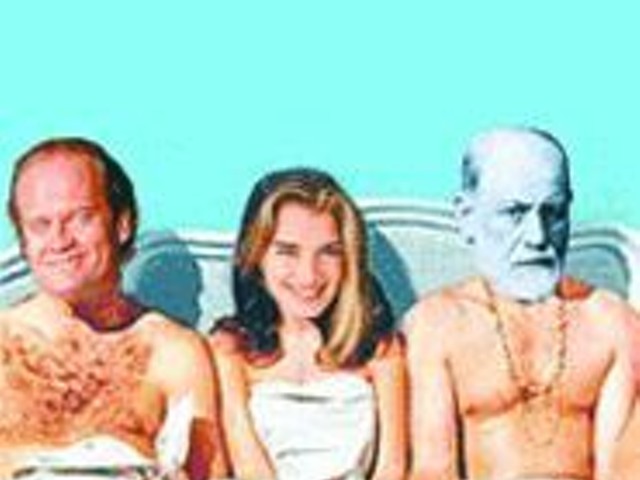Steven Grondalski, University City
Lu and I met in Birmingham, Alabama, in 1958. At the time, Ed Steele — her second cousin — was manager of Goose Tatum's Detroit Clowns, the team I played with. Formerly the Detroit Stars, the club had a long and glorious history in the Negro Leagues, playing against the league's most powerful franchises. Reece "Goose" Tatum, the original showman of the Harlem Globetrotters, was team owner.
My knowledge of Steele dates to 1950, when I played with the Memphis Red Sox and Steele played for the Birmingham Black Barons. On that Birmingham team was a young man named Willie Mays. Lu, as I was later to learn, attended many Black Barons games as a young high school girl.
Meanwhile, during Jackie Robinson's tenure with the Kansas City Monarchs, history was about to be written. But before becoming the first black ballplayer in the major leagues, Robinson had already left a trail of history. At UCLA he starred in football, basketball, baseball and track. Later he became a lieutenant in the military. There one day, while riding a bus driven by a white civilian, he was ordered to take a seat in the rear. He refused — an incident that occurred because he was sitting beside his friend's wife, who was of a light complexion and thought to be white by the driver. For this disobedient act, he received a military court martial.
Robinson's refusal to take a back seat was his first step in spearheading what would later become known as the Civil Rights Movement. Therefore, Robinson predated both Ms. Rosa Parks and Dr. Martin Luther King Jr. by a decade. As the story goes, upon becoming a Dodger, Branch Rickey suggested that he marry his college sweetheart, Rachel. At the end of the 1947 season, Robinson and Roy Campanella — along with other Negro Leaguers — barnstormed in several southern cities, among them Birmingham. While there, Steele introduced Robinson and Campanella to Lu and several of her classmates.
In 1950, at Rickwood Field in Birmingham, the umpire became upset with my manager for protesting a call against one of my Memphis teammates. As a result, he beckoned for white policemen, who worked as security at the ballpark. Once at home plate, they demanded that my manager return to his third base coaching post. Because of his hesitancy, they commenced to beat him with billy clubs until blood streamed down his face, and afterward placed him under arrest. These officers were those of Bull Connor, the diehard racist commissioner whom Dr. King would face years later.
Prince Joe Henry, one of professional baseball's original "clowns," was an all-star infielder for Negro League baseball teams in Memphis, Indianapolis and Detroit throughout the 1950s. But up until the late 1940s, Prince Joe didn?t know anything about the Negro Leagues. His knowledge of organized baseball was limited to the Cardinals and Browns games he attended during his preteen years at Sportsman?s Park, accompanied by lifelong buddy Eugene "Gene" Crittendon, who could pass for white.
Perhaps Henry?s most vivid memory of those games: Upon entry, white ushers would politely escort the boys to a small section of the left-field stands reserved for "Colored." After climbing past several tiers of bleachers, they?d arrive at their stop, rows and rows behind their white counterparts.
Even at a young age, the boys were conscious of the double standard -- and determined to vent their disdain. The opportunity would arise with the urge to urinate. Rather than head for the latrine, the boys would edge their way to the front of the section and let fly. As the liquid foamed its way down the concrete steps toward the white kids, Henry and his pal would ease back and relax, politely rooting for the visiting team to beat the hell out of the Browns or the Cards.
After all, Henry and Crittendon hailed from Brooklyn, Illinois, a small, predominantly black township just east of the Mississippi River. So hospitable were the residents of Brooklyn that they were known to take in a rank stranger, treat him to breakfast, lunch, supper and a night out on the town -- and afterward, if he messed up, treat him to a good ass-whippin'.
Direct questions on any and all topics to [email protected]. If we don't like yours, we'll hit Joe with our own.





